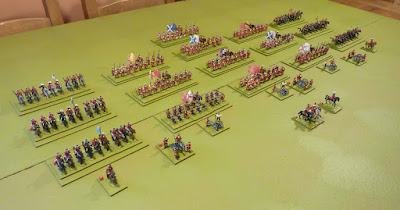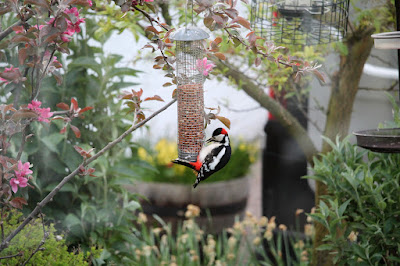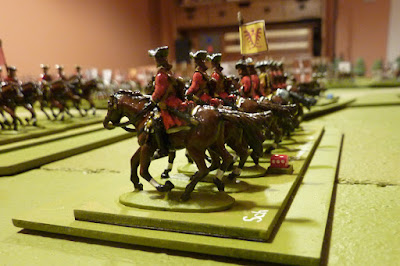My Christmas got off to a flying start when I had to go to bed, unwell, on Saturday morning. A situation which would have been recorded in the cricket score-books of my youth as RETIRED HURT.
Not wishing to dramatise anything here, but I was coughing like an elderly horse, and I was pretty much convinced that I had Covid again, but I have been testing regularly since then, all negative, so I guess I have the flu. Boring.
Right.
Well, I have retired to the attic bedroom (as one does), and I have been relying for entertainment on a USB stick of mp3 music which I recorded a few months ago - I have a few of these, for the car, or any outlying BluRay player; this one is titled French Impressionists and English Pastoralists. A sort of private joke for what kind of music it is.
The French bit is easy enough - Ravel, Debussy, Fauré, Hahn, Ibert, a few others. The English category is less obvious; the composers are associated (in my mind) by the style of music rather than the strict dates. Vaughan-Williams, Delius, Bax, Butterworth, Jeffreys, Finzi, Gurney.
Having stashed my festive food in the freezer until some time when I feel up to it, I'm living on Lucozade and Gerald Finzi - musn't grumble.
Finzi gets me to the point I wanted to discuss here. He's better known now than he was, but still not very popular. Finzi himself lived from 1901 to 1956, first of all in London, was evacuated during WW1 to Harrogate and then moved in later life to Gloucestershire. He is probably best known for his song settings of English poetry, with piano accompaniment, but he also produced some beautiful orchestral work.
I got a real shock when I first heard his Éclogue, for piano and orchestra, on the radio in about 1998 or so. Very moving. Heart stopping, in fact. I understood that he had written the original piece around 1928, as part of a piano concerto which eventually was scrapped. After Finzi's death, his publisher rescued two of the surviving movements as separate pieces. So that must have been around 1960. I couldn't understand how someone who listens to as much music as I have could never have heard such a lovely work; in fact I had never heard of Finzi at all. How could this be?
Well, the start of the explanation is that on that morning I was listening to Classic FM, which was a commercial classical music station in the UK. I would not have heard it on the BBC. Good heavens, no. This is because of the personal bias of one Sir William Glock, a legendary music critic and organiser. Glock is regarded as one of the great men of British music - his influence is still around, though he has been dead since 2000. Glock studied piano with Artur Schnabel in Berlin, and became convinced that modern music was the way to go. He was music critic of the Daily Telegraph and then of the Observer, and ran summer schools to support the growth of "avant-garde" music. His belief was that anyone who wrote music with a more traditional harmonic system - especially if it involved arrangements of folk tunes - was old-hat. Therefore Vaughan-Williams was especially not welcome, as was anyone who had studied under, befriended or (possibly) even heard of Vaughan-Williams.
From 1959 to 1972 Glock was the BBC's Director of Music, and from 1960 to 1973 he was also head of the London Promenade Concerts. He was a despot. Anyone who was on his (alleged) blacklist of composers would not be performed on the BBC, and there was just about a shut-out on all concerts in London. It might have been possible for concerts to have been performed, or even broadcast, in the more provincial parts of Britain, but who cared about that?
If someone was known (or suspected) to be on Glock's list, the effects were far reaching. The UK recording companies would not touch them, since the BBC would not play or review the records, and there was little scope for public performance. I recall, as a young man, being told that Vaughan-Williams was really an eccentric amateur and would have done much better if he had been a more fastidious orchestrator. Who told me this? - that's right - the good old BBC.
Glock didn't only put a stop to some British composers having an audience in Britain; also Aaron Copeland, Franz Schmidt, Szymanowski and a few others were not encouraged.
In later life, Glock was Director of the Bath Festival, and undoubtedly had some positive influences in the field of music, though his obsession with Pierre Boulez strikes me as a bit odd. However, I recently obtained (at last) a CD of the works of John Jeffreys, which was recorded in the last year of Jeffreys' life, 2014. The sleeve notes on the CD explain that Jeffreys and a few of his contemporaries were unfairly ignored during their productive years, and though Glock and his legacy are not mentioned it is obvious why. At one point, Jeffreys, who had a tendency for depressive illness, was frustrated to the point of destroying the manuscripts for most of his (extensive) portfolio of work.
Well, that does it for me. I hope Glock got a severe talking-to when he arrived at the Pearly Gates. The whole thing smells of the Russian Government banning American music. You will not listen to this, because I say so.
It's rather a long piece, but if you don't know the Éclogue, here it is. I promise you will feel better if you have a listen.


























.jpg)



























